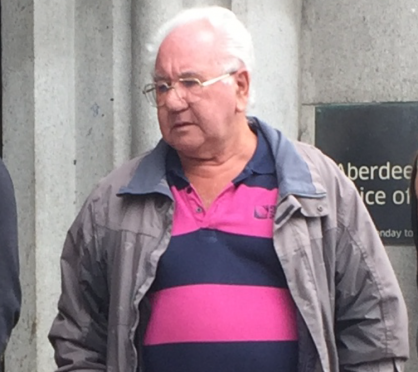A pensioner fraudulently claimed more than £18,000 in benefits after fooling the authorities into believing he had severe difficulties walking – for seven years.
Duncan McDowall continued to claim the disability living allowance he had been receiving, despite his condition having greatly improved.
The 74-year-old started claiming benefits he was entitled to in 1997 after he struggled to walk more than 150 feet.
At the time he was unable to walk for any length of time and claimed he was in severe discomfort seven days a week.
But in 2006 his condition improved significantly, however he failed to tell the Department of Work and Pensions (DWP) and he continued claiming the benefits.
McDowall was eventually caught when the authorities carried out “surveillance” of him and found he was “relatively active”.
He had been spotted walking to the shops almost daily and officials also interviewed his neighbours.
Yesterday the pensioner appeared at Aberdeen Sheriff Court to be sentenced for taking the £18,260.25 he was not entitled to.
He had originally been charged with illicitly taking £36,491.75, however the Crown accepted his guilty plea to the lesser amount.
McDowall, of 48 Barvas Walk, Aberdeen, previously admitted committing the offence, which took place between July 19, 2006 and September 3, 2013.
The court heard his condition had “gradually improved”.
Representing McDowall, solicitor Michael Burnett said his client had not deliberately deceived the authorities. He said McDowall’s claim had started off as genuine but did not realise he needed to tell the DWP about every little improvement to his health.
He said his client had “not been living and extravagant lifestyle” with the cash and that he had started to pay it back.
Sentencing McDowall, Sheriff William Summers said: “You have pled guilty to a charge of benefit fraud. That is a serious matter and even on the basis of the amended liable the sum is still very substantial. I take account this happened because you failed to alert the Department of Work and Pensions, and that at the outset the claim was a valid and genuine one.”
He ordered him to carry out 200 hours of community service in the next year.










